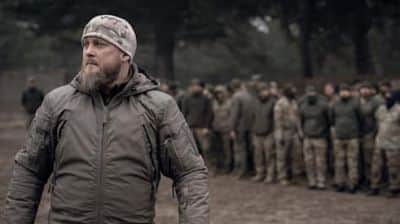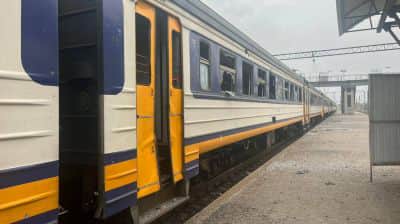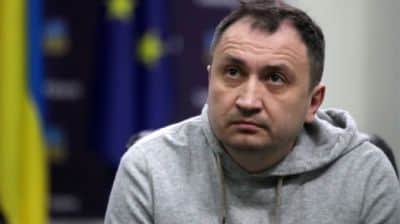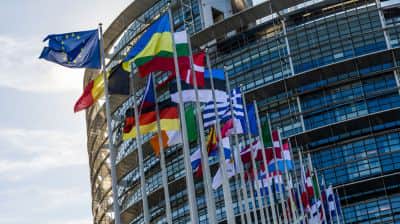ISW explains why Kremlin has not commented on anniversary of Russia's invasion of Ukraine
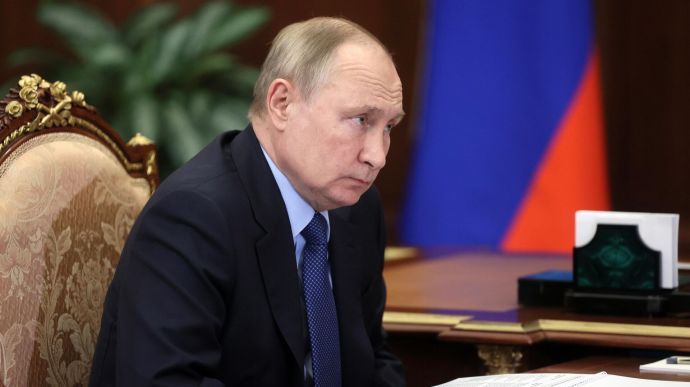
The Institute for the Study of War (ISW) has suggested that Russian authorities did not comment on the first anniversary of Russia's full-scale invasion of Ukraine, likely because Russia has failed to achieve any of its stated objectives.
Source: ISW
Details: The Kremlin did not comment on the first anniversary of Russia's full-scale invasion of Ukraine on 24 February, likely because Russia has failed to achieve any of its stated objectives and has not made significant territorial gains since July 2022.
Russian President Vladimir Putin and his administration made no statements relating to the anniversary even though Putin has made numerous public appearances over the past three days.
Dmitry Medvedev, Deputy Chairman of the Russian Security Council, made inflammatory claims that Russia will win the war and reiterated that it is vital for Russia to achieve its goals to "push back the borders that threaten [Russia – ed.] as far as possible, even if they are the borders of Poland."
"Medvedev's statements highlight the fact that the Kremlin is continuing to pursue its unrealistic maximalist goals even though it has no meaningful successes to offer the Russian people after a year of costly war in Ukraine," ISW’s report said.
The ISW suggested Russian officials are likely seeking support from Chinese defence manufacturers due to restrictions that international sanctions regimes have placed on Russia's defence industry.
The ISW reiterated that the UK government and the US Department of Treasury both announced new sanctions and export ban measures on 24 February, specifically targeting industries, entities, and individuals supporting Russian military capabilities.
In addition, Western governments made a variety of statements on the provision of military aid to Ukraine on 24 February.
The ISW also noted that the Kremlin escalated its information conditions-setting for a possible false-flag operation in Russian-occupied Transnistria (a non-recognised breakaway state bordering Moldova and Ukraine).
Some Russian milbloggers amplified the Kremlin's rhetoric by claiming that the situation along the Ukrainian-Transnistrian border is becoming increasingly tense. But at the same time, Moldovan officials continued to deny Russian claims on 24 February, characterising the claims as "aggressive disinformation" or "a psychological operation".
Key Takeaways from 24 February:
- The Kremlin did not comment on the first anniversary of Russia's full-scale invasion of Ukraine on 24 February, likely because Russia has failed to achieve any of its stated objectives and has not made significant territorial gains since July 2022.
- A Russian source capitalised on China's release of a 12-point peace plan to inaccurately portray China as supporting Russia's war in Ukraine.
- US intelligence reportedly continues to assess that China is seriously considering sending lethal aid to Russia amid continued pressure from Western sanctions regimes on Russia's defence industrial base.
- Western governments made a variety of statements on the provision of military aid to Ukraine on 24 February.
- The Kremlin escalated its information condition-setting for a possible false-flag operation in occupied Transnistria (Moldova).
- Russian forces continued to conduct ground attacks northwest of Svatove and near Kreminna.
- Russian sources confirmed that Russian forces have split certain Airborne (VDV) force formations across at least two fronts of advance.
- Russian forces made marginal territorial gains around Bakhmut and continued to conduct ground attacks across the Donetsk Oblast front line.
- Ukrainian officials suggested that Russian forces may feel insecure in east (left) bank Kherson Oblast.
- Russian authorities continue measures to expand the capacity of Russian peacekeepers.
- Russian sources likely attempted to shift the blame for scandals associated with Donetsk People's Republic (DPR) commanders to the conventional Russian military.
- Ukrainian partisans likely blew up a railway segment near Poshtove, Crimea.
Journalists fight on their own frontline. Support Ukrainska Pravda or become our patron!


